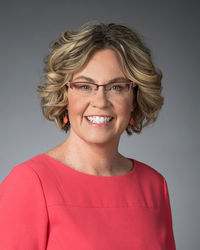From the director

I don’t typically write about the same subject in consecutive director’s notes, but these are not typical times for Catholics. The multi-faceted clergy sex abuse crisis has continued to dominate the news cycle and therefore much of my work at Cushwa and beyond in recent months. I have listened to and learned a great deal from survivors and others who have more intimate knowledge and expertise than I do on the crisis and its root causes.
In December, I had a particularly illuminating meeting with Rev. Hans Zollner, S.J., of the Pontifical Gregorian University in Rome. He has served on the Pontifical Commission for the Protection of Minors since its creation in 2014, as well as on the organizing committee for February’s Vatican summit on the issue. We hope he will visit Notre Dame soon to share his recommendations about how scholars can help the church identify a way forward. In February, Cushwa hosted John O’Malley, former special counsel for the Archdiocese of Chicago, and three of his colleagues who currently work for the Archdiocese, for an informative session in which we learned how their offices have worked assiduously since 1992 to ensure the protection of children. Like Peter Steinfels’ January 2019 article in Commonweal, their presentation reminded us that it is important that our analyses be based on solid historical evidence rather than news reports, and that it is essential to differentiate among historical periods when assessing patterns of abuse and church officials’ responses. Historians have a great deal of work to do before we can understand the scope of the scandal and the myriad factors that enabled it.
As I mentioned last issue, Rev. John I. Jenkins, C.S.C., appointed me to co-chair a task force on Notre Dame’s scholarly response to the scandal. Father John recently published his response to our report and announced that his office will provide up to $1 million over the next three years for research projects addressing issues emerging from the crisis. I am hopeful that the Cushwa Center will secure a grant. To that end, I welcome readers’ ideas about possible projects.
Meanwhile, I am grateful to Robert Orsi and Brian Clites for agreeing to share their research on clergy sex abuse in Cushwa-sponsored lectures (upcoming in April and November, respectively). Having given several talks about this crisis over the last few months, I can attest that it is heart-wrenching to immerse oneself in this subject, and that it is impossible to maintain the usual scholarly detachment in the face of the raw anger and pain inevitably on display among members of the audience. The more I learn, the more sickened I am. But I am also ever more convinced that scholars of American Catholicism must commit themselves to uncovering the truth.
Kathleen Sprows Cummings
Kathleen Sprows Cummings is the William W. and Anna Jean Cushwa Director of the Cushwa Center for the Study of American Catholicism at the University of Notre Dame. She is also an associate professor of American studies and history at Notre Dame.
This director's note appears in the spring 2019 issue of the American Catholic Studies Newsletter.